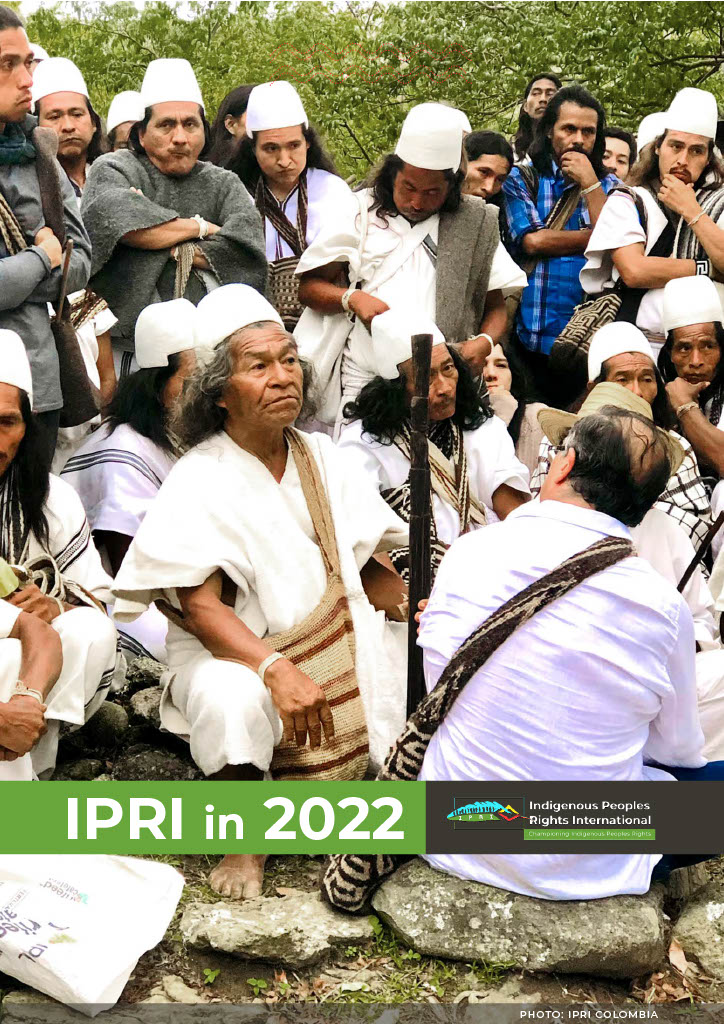From the Executive Director
2022 has been a breakthrough year for IPRI. With the waning of COVID-19, we were able to increase and expand our engagement at national, regional and global levels. IPRI has now established itself with increased visibility as the Indigenous-led global organization focusing on criminalization and human rights violation of Indigenous Peoples. We have contributed significantly to the General Recommendations 39 of the Committee for the Elimination of Discrimination Against Women (CEDAW), coordinated the effective participation of Indigenous Peoples with the UN Working Group on Business and Human Rights, gained the support of 500+ organizations in our sign-on letters for solidarity support, and released publications of joint reports highlighting the human rights violations in climate actions, business operations, among others.
With our different forms of advocacy and engagements, IPRI is being acknowledged as an important actor at the global level by Indigenous Peoples’ organizations and networks, UN bodies, human rights organizations and advocate organizations through our active collaboration and cooperation with them.
At the national level, IPRI’s work in the six focus countries--through partnerships with Indigenous organizations in Mexico, Brazil, Colombia, Philippines, India and DRC--are achieving increasing visibility and actions in addressing criminalization and violation of Indigenous Peoples’ rights with impunity. Our work at the national level has different levels of progress, and some serious challenges need to be addressed in relation to the strategic positioning of partners to focus in addressing the worsening human rights condition of Indigenous Peoples.
The major gap in our programme implementation is the absence of a research coordinator. In spite of our open call for applications, we were not able to hire a qualified staff. Moreover, the database took a long time to be established due to technical delays. We shall address these gaps in 2023.
With our different forms of advocacy and engagements, IPRI is being acknowledged as an important actor at the global level by Indigenous Peoples’ organizations and networks, UN bodies, human rights organizations and advocate organizations through our active collaboration and cooperation with them.
At the national level, IPRI’s work in the six focus countries--through partnerships with Indigenous organizations in Mexico, Brazil, Colombia, Philippines, India and DRC--are achieving increasing visibility and actions in addressing criminalization and violation of Indigenous Peoples’ rights with impunity. Our work at the national level has different levels of progress, and some serious challenges need to be addressed in relation to the strategic positioning of partners to focus in addressing the worsening human rights condition of Indigenous Peoples.
The major gap in our programme implementation is the absence of a research coordinator. In spite of our open call for applications, we were not able to hire a qualified staff. Moreover, the database took a long time to be established due to technical delays. We shall address these gaps in 2023.


